If there’s one consequence of the climate emergency that is at once both very well-known and greatly misunderstood, it’s sea level rise.
On one hand, sea level rise is easy to understand: the world gets warmer, the vast frozen parts of our planet melt, the level of the ocean goes up. But once you start studying this process, you quickly learn that the effects are not evenly distributed.
Due to quirks of oceanic physics, the oceans are not rising at an equal pace everywhere. Coastal regions have long been the focal point for colonisation, military power, and economic activity, and there will be winners and losers as the seas overtake the world’s beaches and villages at differing rates, with differing abilities for families, communities, and governments to adapt and prepare. Insidious changes, like worsening tidal flooding and salinity of groundwater, will force people to abandon the coastal zone long before those places are permanently inundated. Even for those of us who have been thinking about climate change our entire adult lives, these nuances are worth remembering.
Glaciers could collapse within decades if world leaders continue to ignore the urgent need to transition to a zero carbon economy.
What’s worse, a new study provides more accurate estimates that sinking coastal land worldwide could greatly worsen the effect of sea level rise. About one billion people live within 10 metres of sea level – that’s about 13% of the world’s population, even though it’s only about 2% of the world’s land area. But, of course, sea level rise will affect you even if you’ve never been to the ocean. Trillions of dollars of real estate, irreplaceable cultural heritage, and the survival of thousands of protected species and ecosystems are at risk.
Sea level science is also still worryingly uncertain. In the new best-case scenario, 80 million people could be displaced by the end of the century. In the worst-case scenario, that many could be displaced within the next 30 years. Of urgent importance is the fate of the West Antarctic Ice Sheet, a remote network of glaciers that alone hold back about three metres of sea level rise. These glaciers could collapse within decades if world leaders continue to ignore the urgent need to transition to a zero carbon economy.
If humanity rapidly reduces greenhouse gas emissions or if the science of the cryosphere ends up aligning a bit more on the side of slow collapse, it could be that sea level rise won’t pose a catastrophic threat for hundreds of years, if ever. This is why understanding the mechanisms of ice collapse with precision in some of the most inaccessible parts of the planet is at the forefront of climate science, and new findings that could shape the course of human civilisation are now being released almost monthly.
There are always new voices worth bringing into the conversation
Much has already been written on this topic, and with good reason; the effects of sea level rise are already pervasive in nearly all aspects of society. But it’s worth revisiting the way we think about climate change – and sea level rise, especially – to reflect the renewed urgency of our current moment, particularly from a transnational perspective.
The books below reflect four corners of discourse – and a fifth voice that’s a little different – on one of the most important topics of our time, although they’re by no means comprehensive.
This selection may be familiar to people who have paid especially close attention to climate change in recent years – but when read together, in the order I’ve listed them, I think they send a powerful message. We can never know enough about this particularly complex topic, and that there are always new voices that are worth bringing into the conversation.
The Water Will Come, by Jeff Goodell
The Water Will Come: Rising Seas, Sinking Cities, and the Remaking of the Civilized World – Jeff Goodell, 2017: Little, Brown and Company
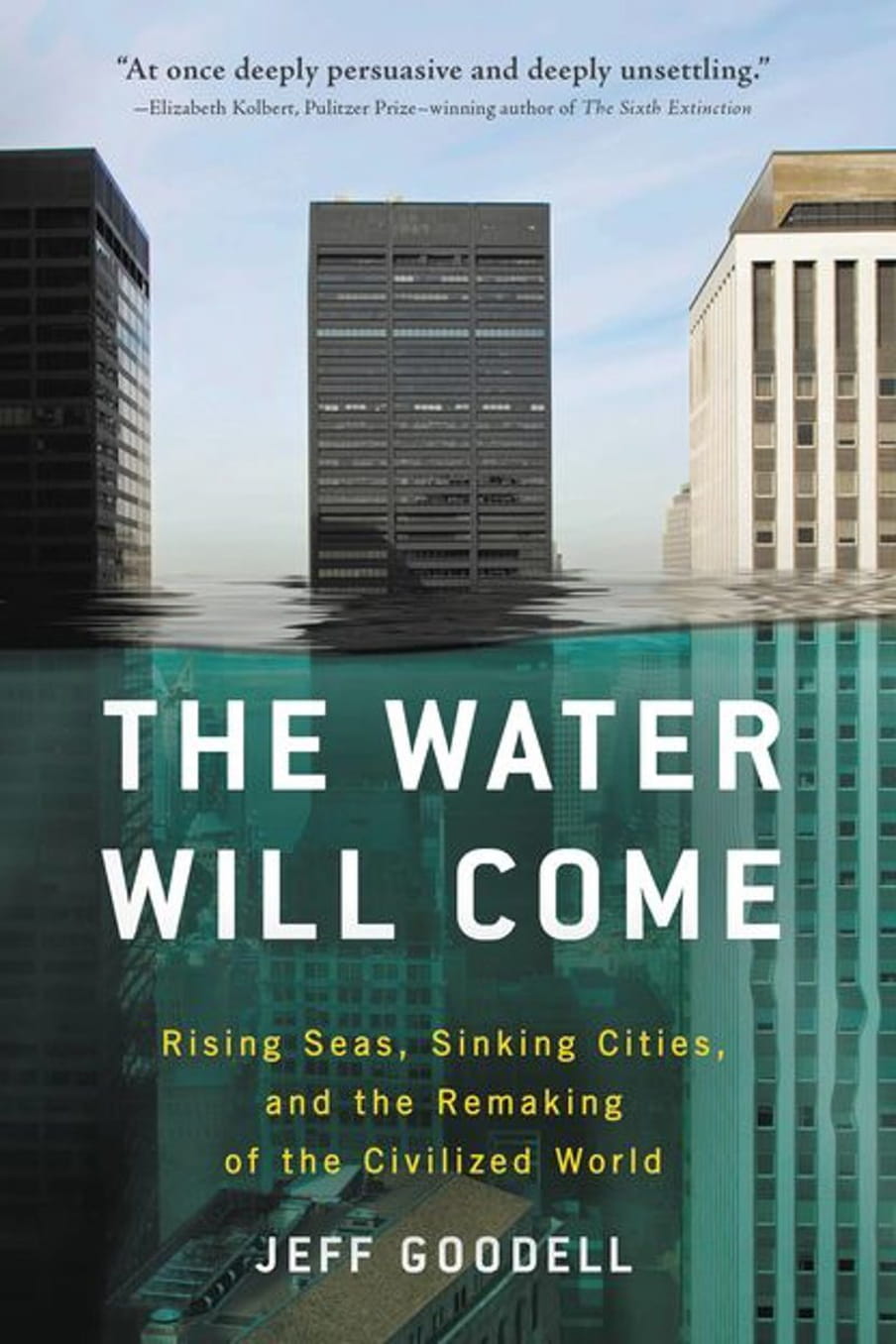
A fluent master of climate reporting, American journalist Jeff Goodell crafts vivid scenes from both the present and future while personally visiting the frontlines of the sea level fight, from Miami to the Marshall Islands.
His message is clear: we’ve already locked in millennia of change. There’s a certainty of future sea level rise, no matter what we do next. What’s still up for grabs is exactly how much. This book is the gold standard of popular writing on one of climate change’s most important topics; it’s richly reported, and essential reading.
Still, there’s an unwarranted finality in Goodell’s writing, delivered in a tone that is ominous and foreboding. It should be read with a critical eye as an excellent example of mainstream climate reporting, keeping in mind all the other stories that remain beyond the scope of this particular narrative.
Jeff Goodell is a contributing editor at Rolling Stone, where he has covered climate change for more than a decade. He is also a frequent contributor to The New York Times Magazine and Yale University’s Environment 360.
The Great Derangement, by Amitav Ghosh
The Great Derangement: Climate Change and the Unthinkable – Amitav Ghosh, 2017: University of Chicago Press
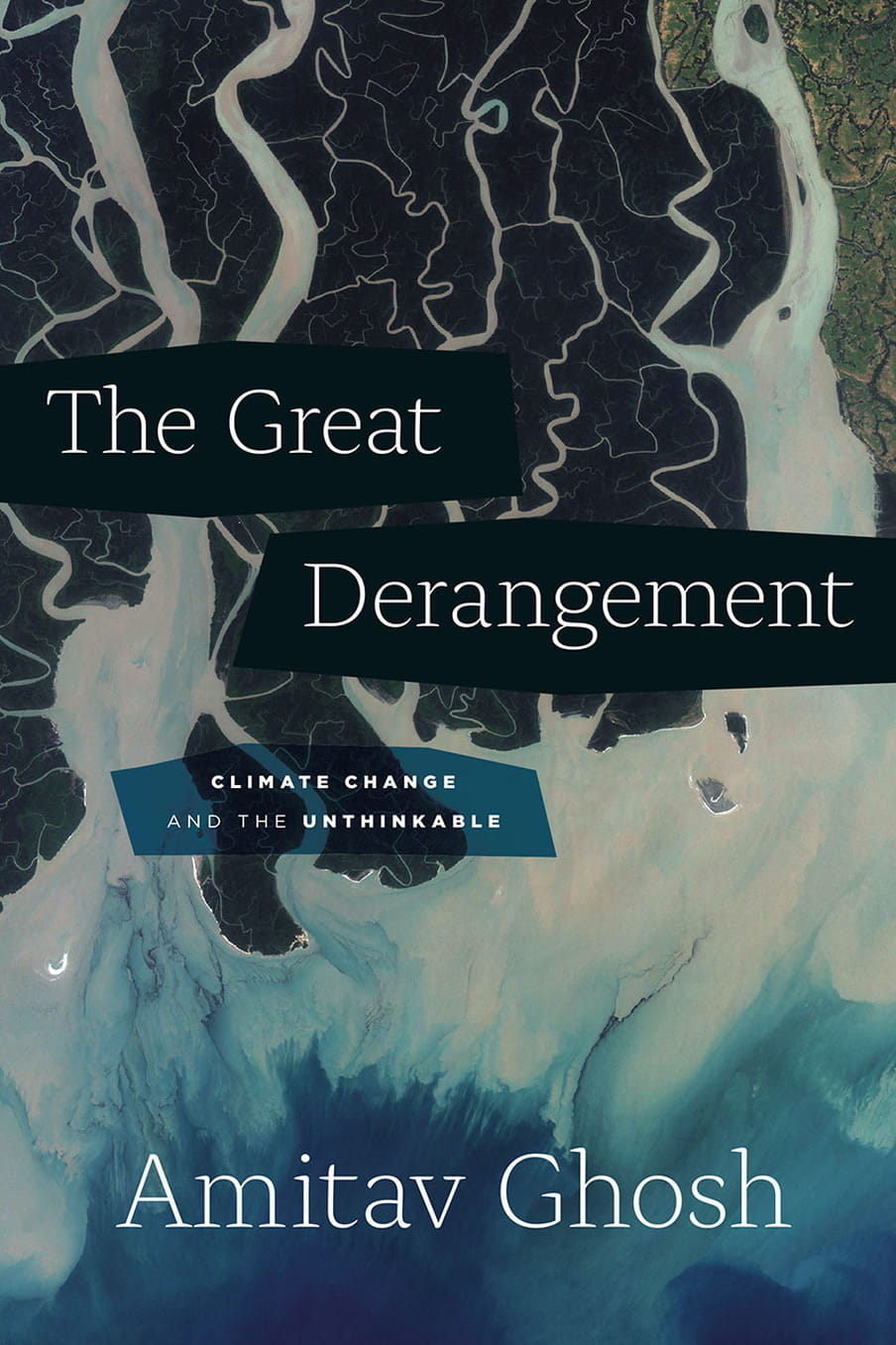
The jarring facts of climate change lull us into a collective delusion, writes Indian novelist Ghosh in this non-fiction commentary on the most intractable and consequential problem of our time. What is happening is so improbable, he says, it would be rejected by a Hollywood script editor for being too over the top. So why can’t we solve it?
Writing as a citizen of a country in a region that might be hit hardest by sea level rise, Ghosh weaves the ongoing legacy of colonialism and capitalism into an attempt to explain why a topic as shocking as climate change has not yet risen to the forefront of collective concern.
He finds part of his answer in the original 1992 treaty that established the UN’s ability to tackle climate change. The astute authors of that document enshrined the principle of “common but differentiated responsibilities” that now defines the voluntary Paris agreement. The environmental movement hasn’t yet figured out how to effectively tell that fundamental climate story – though all of us play some role in both the problem and the solution, some of us are far more responsible than others. What we have, Ghosh argues, is a storytelling problem.
Amitav Ghosh, from India, is an award-winning author of both fiction and non-fiction. His most recent novel, Gun Island, is due to be published in 2019.
Iep Jaltok, by Kathy Jetnil-Kijiner
Iep Jaltok: Poems from a Marshallese Daughter – Kathy Jetn̄il-Kijiner, 2017: University of Arizona Press
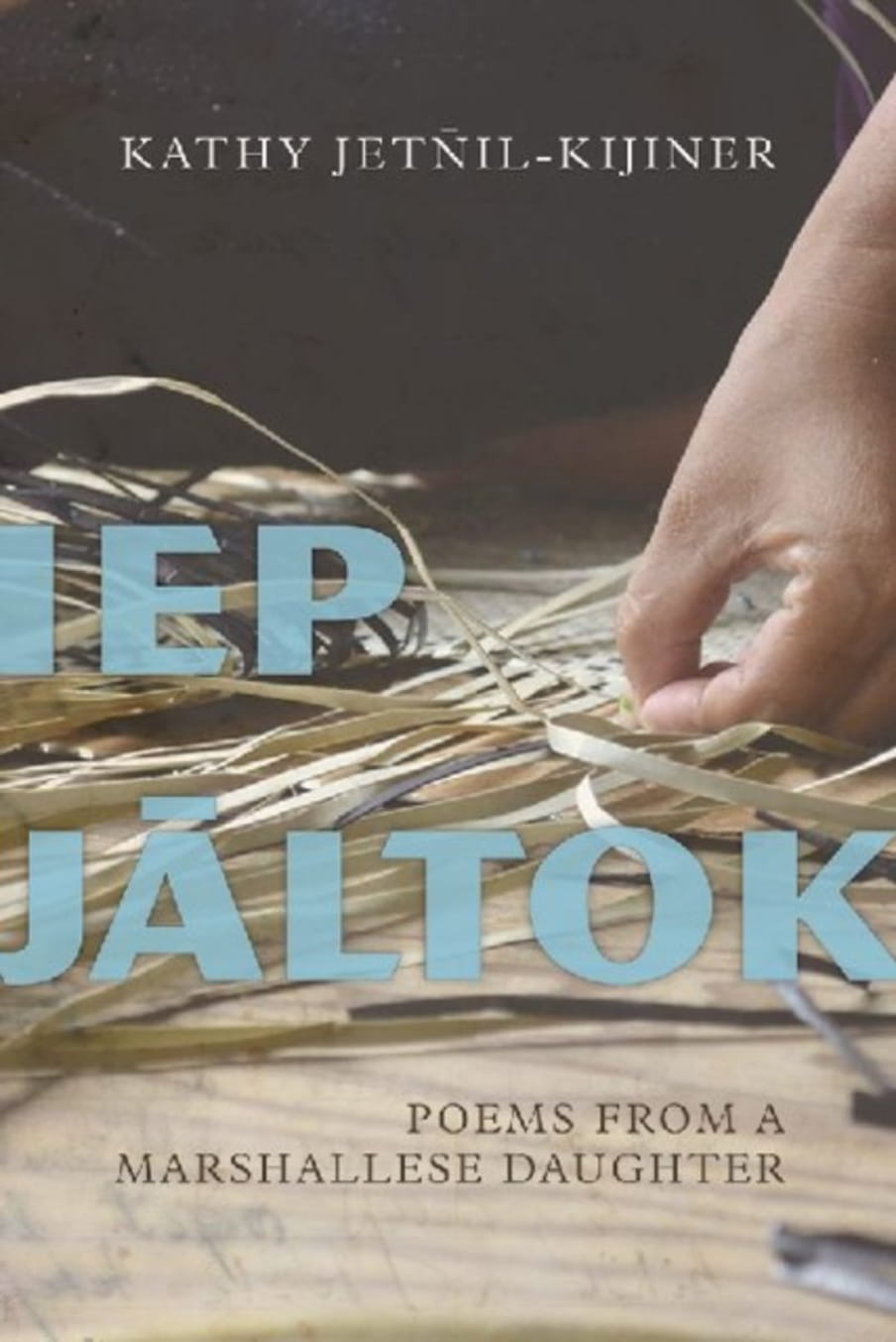
I first learned of Jetn̄il-Kijiner’s work when she performed her poem “Dear Matafele Peinem” in front of the UN General Assembly in 2014, during the run-up to the Paris climate summit. As I wrote then, her words cut perfectly to the hearts of world leaders, provoking tears and (in hindsight) heightened concern for the central role of small island states in 21st century global politics.
Since that day, a lot has changed for Jetn̄il-Kijiner. Her mother was elected as the first female president of the Marshall Islands; in fact, the first female head of state in the entire Pacific region. Her daughter, the namesake of that 2014 poem, is growing up. And she has published this book of poems.
Read in the context of the rising power of young women of colour from the global south in the climate movement, this collection forms a partial answer to the question posed by Amitav Ghosh: an example of the revolutionary potential of telling the right story at the right time.
Kathy Jetn̄il-Kijiner is a poet, performance artist and educator from the Marshall Islands
Rising, by Elizabeth Rush
Rising: dispatches from the new American shore – Elizabeth Rush, 2019: Milkweed editions
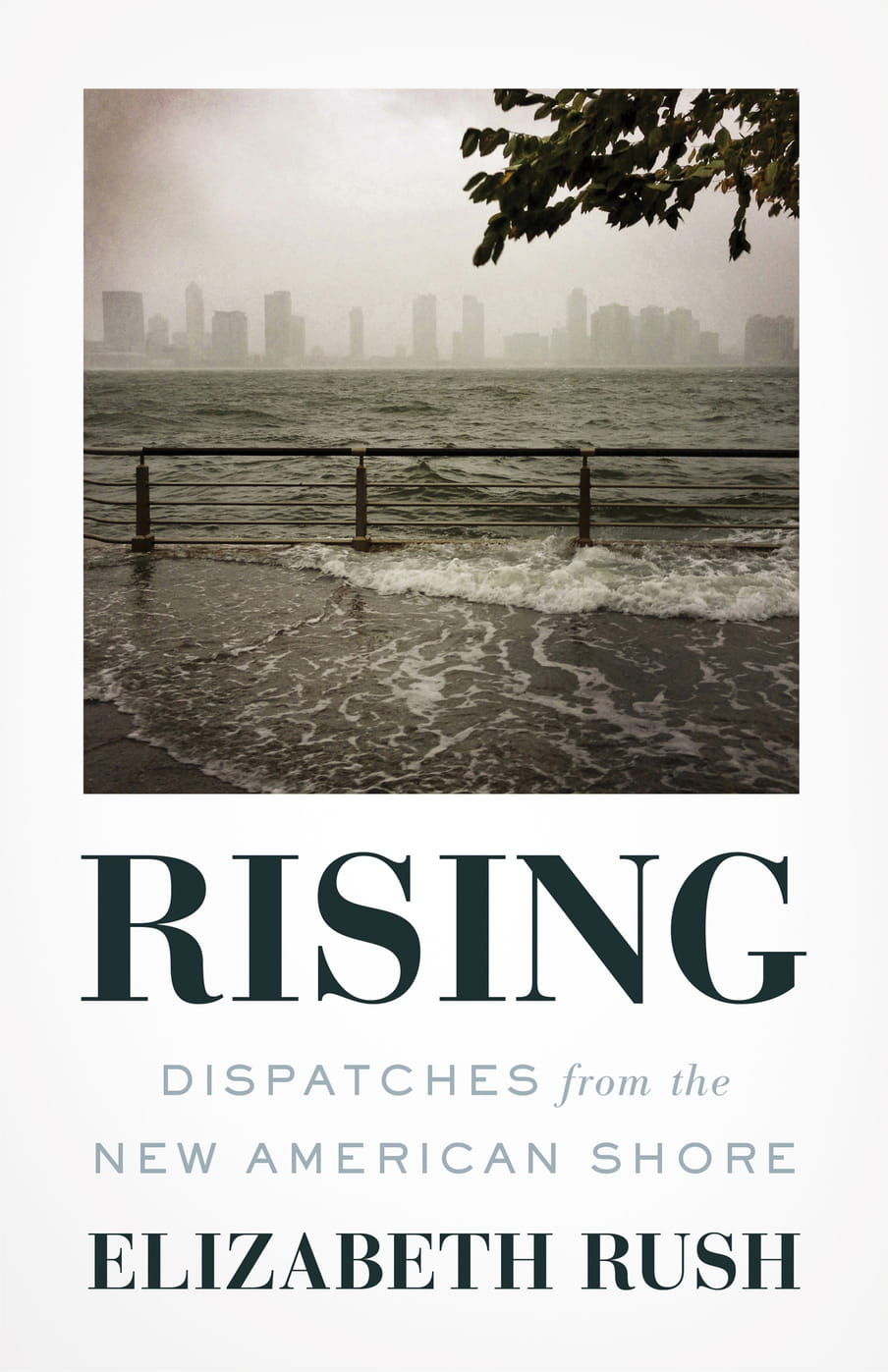
In this Pulitzer-finalist collection of stories from people on the front lines of sea level rise around the United States, Rush has provided an example of the future of climate journalism: letting the people most affected define the stories that are told.
The result is striking: we get glimpses into all the insidious nuances of this incredible moment in history, in ways that the past decades of climate writing have usually missed. The title Rising, of course, has a double meaning: we live in a revolutionary moment, and it is our solidarity that will change the narrative.
Since publishing this book, Rush has embedded herself in a scientific expedition to Thwaites Glacier in Antarctica (alongside Jeff Goodell and a few other journalists).
Elizabeth Rush is an American writer and Visiting Lecturer at Brown University.
New York 2140, by Kim Stanley Robinson
New York 2140 – Kim Stanley Robinson, 2017: Orbit
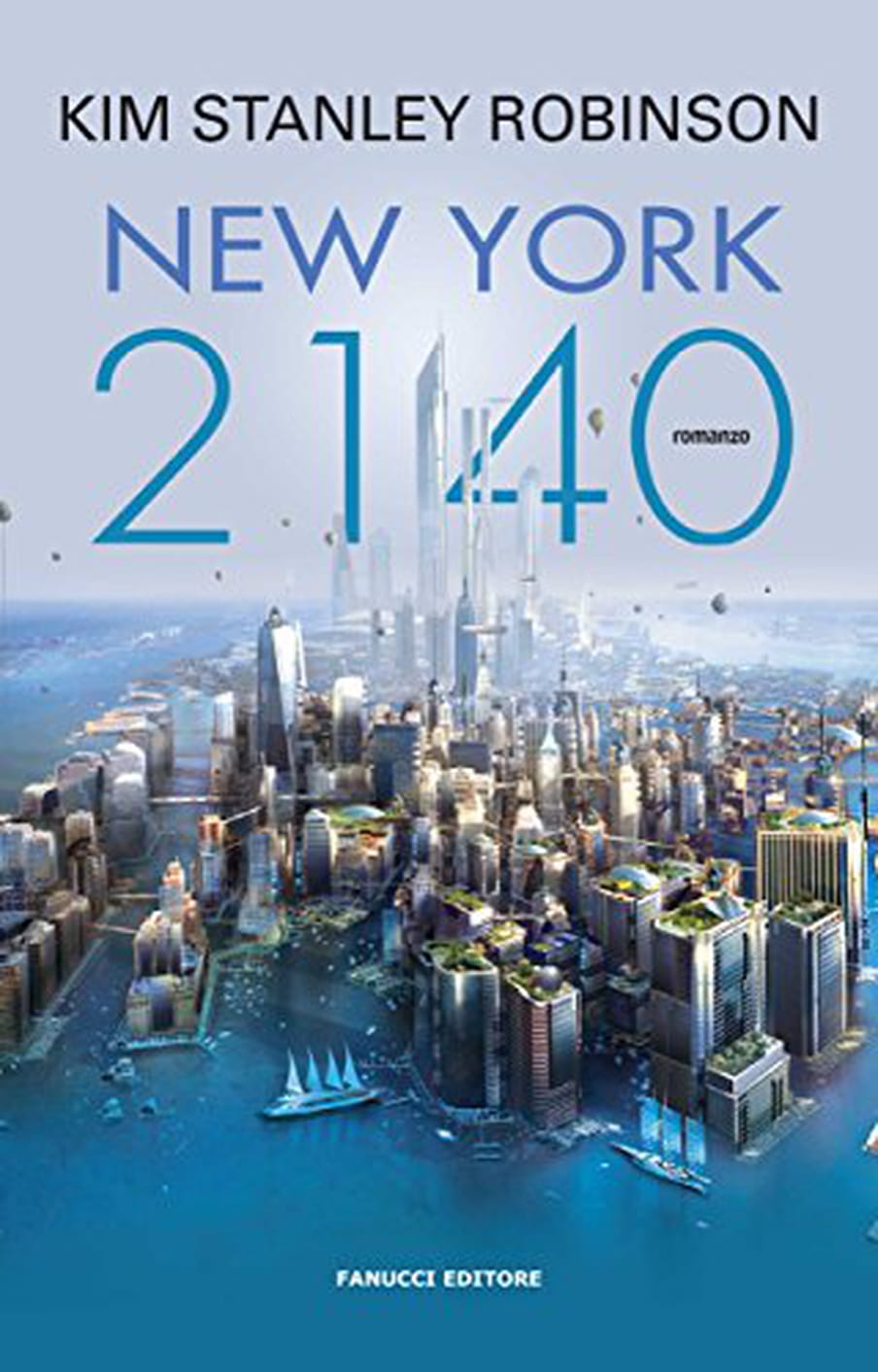
Not your typical post-apocalyptic novel, Kim Stanley Robinson reminds us that the future ahead of us is unlike anything we have imagined, and that it doesn’t have to end in tragedy.
An antidote to the sometimes cold, impersonal climate-focused science fiction, Robinson imagines a rich existence in a post-climate change world. Although the seas have risen by 15 metres, this is not an apocalypse by any means. It is a documentary of how humanity might re-learn how to thrive in an era of constant change. The end is never the end.
In a world where even reality seems like something off the cutting floor of a summer blockbuster movie, this is an unforgettable reimagination of what’s possible.
Kim Stanley Robinson is an American author of science fiction.
Dig deeper
 Climate change is about how we treat each other
Our weather has changed so rapidly that we now stand on the brink of collapse. But simply speaking about the impending apocalypse will do nothing to change it. We need to reimagine human relationships.
Climate change is about how we treat each other
Our weather has changed so rapidly that we now stand on the brink of collapse. But simply speaking about the impending apocalypse will do nothing to change it. We need to reimagine human relationships.


